In addition to our programming and projects, OSCAR also publishes reports and whitepapers on specific topics. See a few of our most recent works below.
Whitepapers and Reports
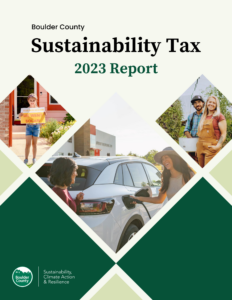
2023 Sustainability Tax Report (July 2024)
In 2019, Boulder County residents approved a 15-year extension of the Boulder County Sustainability Tax, a 0.125% sales and use tax, that runs through the end 2034. This report highlights work from 25+ programs funded by the Boulder County Sustainability Tax in 2023, featuring snapshots of community experiences, earned media coverage, and more.

2021 Greenhouse Gas Inventory GIS Storymap (January 2024)
This report shares countywide emissions for 2021 and visualizes them in a multi-media format. Emissions data is broken down by sector and community. Finally, the report puts forth more ambitious greenhouse gas reduction goals for Boulder County.
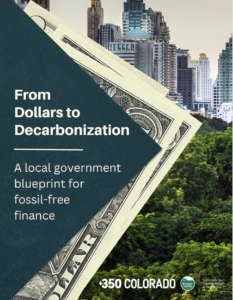
Municipal Divestment Toolkit (November 2023)
This toolkit provides an easy-to-understand fossil fuel divestment blueprint for local governments. Readers receive clear, step-by-step actions across four areas: pensions, insurance, banking, and direct divestment, with research, real cases, and policy templates.
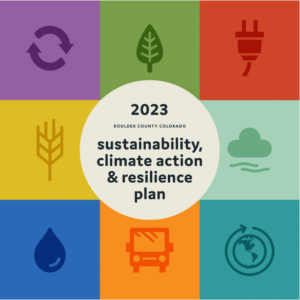
2023 Sustainability Plan (June 2023)
The Environmental Sustainability Plan articulates Boulder County’s vision to create a more environmentally sustainable community. This 2023 version is the third iteration of the plan. Previous versions of the plan were published in 2012 and 2018.
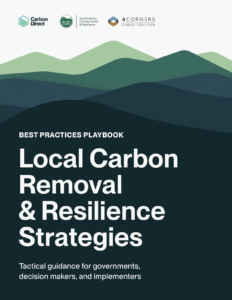
Carbon Removal Playbook (May 2023)
OSCAR recently collaborated with Carbon Direct, a carbon management company, to release our Carbon Removal Playbook and supplemental report. These documents aim to help local governments develop local carbon dioxide removal strategies.
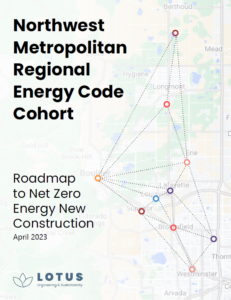
Net Zero New Construction Roadmap (April 2023)
Several Colorado counties and municipalities in the Northwest Metropolitan Regional Energy Code Cohort published a Roadmap to Net Zero Energy New Construction. This roadmap aims to reduce greenhouse gas emissions and improve resilience by achieving net zero codes in new construction by the end of 2030. In the development process, the Cohort prioritized housing affordability and equity, as well as local decarbonization, resilience, and ease of permitting for staff and builders.
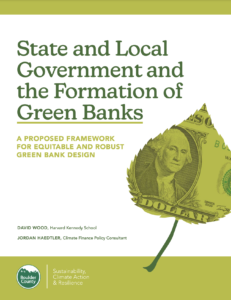
Green Bank Memo (December 2022)
State and local governments are critical actors in determining whether the Inflation Reduction Act will transform climate and industrial policy. The IRA’s Greenhouse Gas Reduction Fund provides $27 billion to support the proliferation of new and existing state green banks. In this memo, we make recommendations on impact and equity in green bank design.

